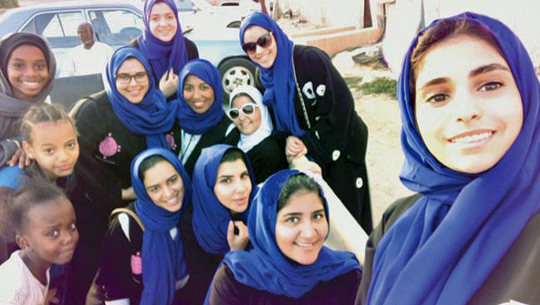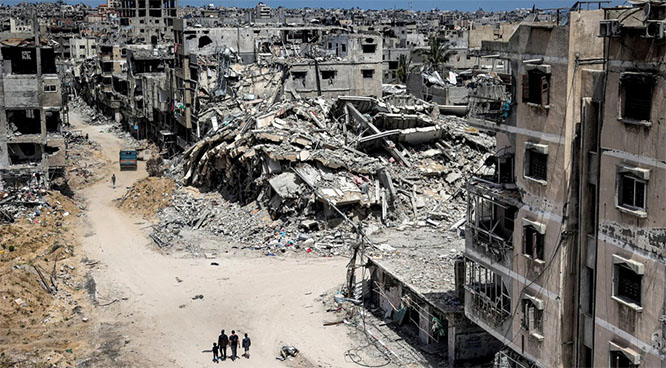Gaza civil defense agency has warned of a looming health disaster in the besieged Strip as the decomposition of dead bodies under the rubble of buildings destroyed by the relentless Israeli bombings accelerates.
The agency pointed on Tuesday to the risk of diseases and epidemics associated with the public decomposition of thousands of bodies due to rising temperature.
“The continued accumulation of thousands of bodies under the rubble has begun to cause the spread of disease and epidemics, especially with the onset of summer and the rise in temperatures, which accelerates the process of decomposition,” it said in a statement.
Seven months into the war, the Geneva-based Euro-Mediterranean Human Rights Monitor warned earlier that the decomposition of dead bodies for long periods leads to the transmission of serious diseases, including blood-borne viruses and tuberculosis.
"Gastrointestinal infections like cholera can also be easily spread through direct contact with dead bodies leaking excrement, soiled clothing, or contaminated tools or vehicles," it added.
In another report last week, Euro-Med Monitor also warned that thousands of corpses left in the streets or beneath house debris are rotting and being consumed by cats and dogs, which is an additional factor contributing to the spread of infectious diseases.
"The spread threatens the environment and public health in the Strip, and health authorities in the Strip have detected about one million cases of infectious diseases," the report added.
The Global Nutrition Group also estimates that at least 90 percent of the Gaza Strip’s children under the age of five are affected by one or more infectious diseases and that 70 percent have had diarrhea in the past two weeks—a 23-fold increase compared with the 2022 baseline.
Unexpected blistering temperatures across Gaza have also added to the daily misery faced by the enclave’s people and sparked new fears of disease outbreaks amid a lack of sufficient clean water and waste disposal, the UN Relief and Works Agency for Palestine Refugees in the Near East, also known as UNRWA said on Thursday.
This comes as the death toll from Israel's genocidal campaign against Gaza rose to 34,535. Among the dead are more than 14,500 children and 9,500 women.
Since the war began on October 7, nearly 85 percent of Gaza's 2.3 million people have been displaced.
Vast swathes of the besieged territory are in ruins as Israel continues its onslaught, dropping at least 75,000 tons of explosives on Gaza, according to the Gaza Media Office.
Earlier this month, UNRWA, said 62 percent of all houses in the besieged territory have been damaged or destroyed.
Gaza Media Office recently reported that nearly 90,000 housing units have been destroyed while nearly 300,000 units have been damaged by the Israeli air and ground offensive.
The United Nations Office for the Coordination of Humanitarian Affairs (OCHA) reported on Monday that nearly 37.5 million tons of conflict-generated debris are estimated to be present throughout Gaza, based on assessments by UN bodies.
The world’s hunger watchdog, known as the Integrated Food-Security Phase Classification (IPC), said in a report published on March 18 that about 1.1 million Palestinians in Gaza are living through catastrophic food insecurity, warning that famine is likely to strike by May in northern Gaza and can spread across the territory by July.
Francesca Albanese, the UN special rapporteur on the occupied Palestinian territory, said in a report published in late March that there were clear indications that Israel has violated three of the five acts listed under the UN Genocide Convention.
These acts Albanese said were “killing members of the group; causing serious bodily or mental harm to the group’s members; and deliberately inflicting on the group conditions of life calculated to bring about its physical destruction in whole or in part.”







Comments
Add new comment